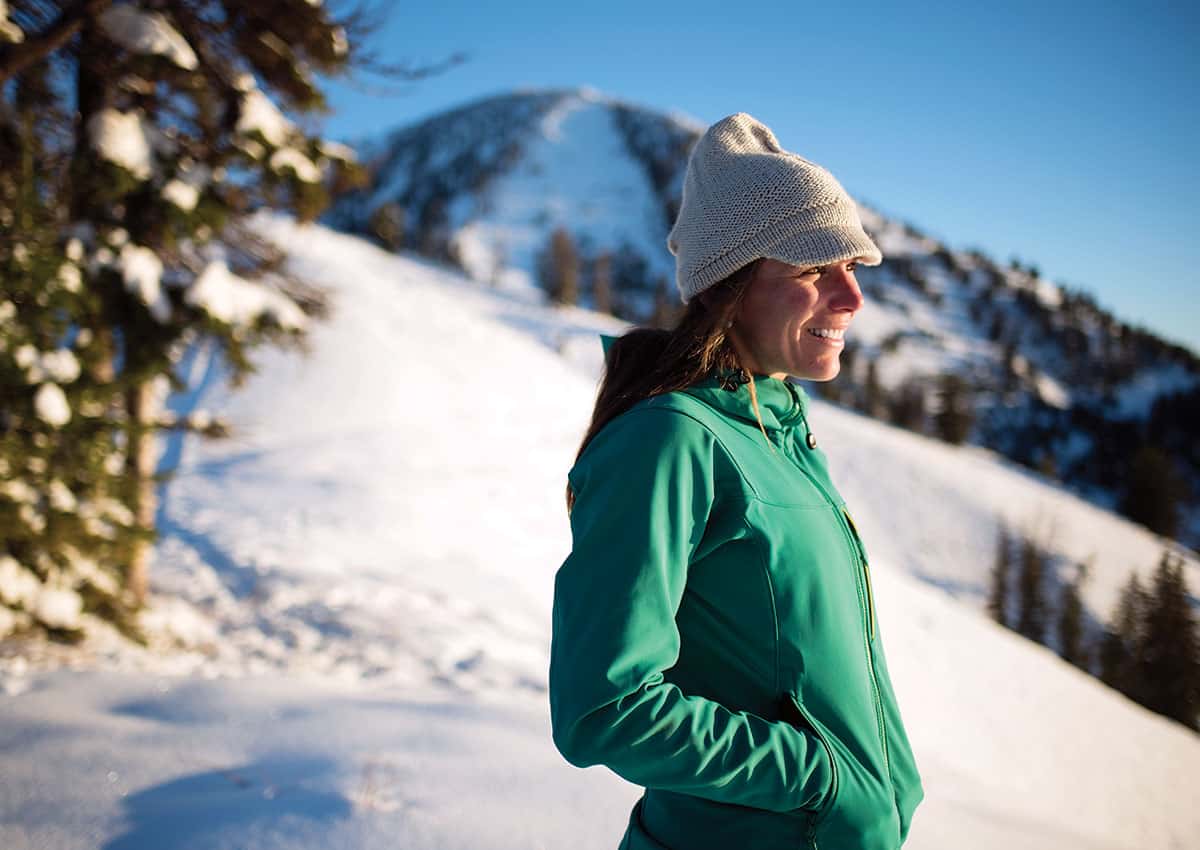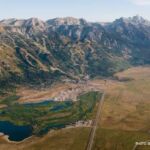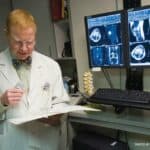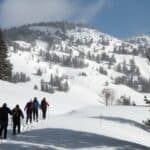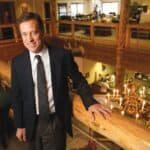Read The
Current Issue
Julia Heemstra
Interview by Rachel Walker
Photograph by bradly j. boner
JULIA HEEMSTRA DOES more in the Tetons in one day than most people do in a lifetime. She recently shattered the existing record for the “Moranic”—bicycling from town to Grand Teton National Park’s Leigh Lake (twenty-five miles), swimming two miles across the lake to the base of the Falling Ice Glacier on Mount Moran, climbing Mt. Moran (12,605 feet tall), and then doing the entire thing in reverse, all without any assistance. (Heemstra carried her wetsuit, extra clothes, and food in waterproof panniers on her bike and towed them behind her as she swam.) She did this in 16 hours, 13 minutes, besting the previous record—set by a man—by 1 hour and 17 minutes. But don’t expect any swagger or smack talk from Heemstra, who is also the director of the Wellness Department at St. John’s Medical Center. The forty-two-year-old South Africa native says she pushes herself athletically because it brings her peace. Gratitude, not accolades, is her goal.
Q: Do you enjoy suffering?
A: I enjoy it, especially the mental piece. But, believe it or not, [the Moranic] wasn’t a sufferfest. These bigger days are incredibly powerful metaphors for life.
Q: Explain the metaphor.
A: Nose down, work as hard as I can, and I believe things might get a little easier. Life is a lot like that.
Q: You’re the director of the Wellness Department at St. John’s Medical Center. Can you be “well” without being extreme?
A: To me, wellness is the combination of mind, body, spirit, and social balance in an individual’s life. And it’s how that balance allows them to reach their individual apex, whatever that is. So often people think of wellness as eating a bunch of kale and exercising, but it’s also about reaching to achieve their goals.
Q: Have you always been goal-oriented?
A: I grew up in South Africa, at the height of apartheid. My mother worked hard to make me aware of the injustice, and when I moved to the States [for high school], I did all I could to learn about South Africa, which was starting to desegregate. I was determined to help change the country for good, and I set specific goals and worked toward them.
Q: What kind of goals?
A: I wanted to help Zulu children get an education, but to be admitted into the newly desegregated schools they had to speak English. So I took a year off between high school and college, and in 1991 moved to the middle of nowhere in South Africa and started a preschool for Zulu children.
Q: I’d imagine that was a learning experience for you as well?
A: I was seventeen and had a level of optimism that, in retrospect, I can say was at times unrealistic. But it served a really strong purpose, because it allowed me to believe I could beat the system and prepare these kids so they could go to school.
Q: Do you have a personal philosophy or mantra?
A: At this stage in my life there are three statements that drive me: (1) decide what matters; (2) try my hardest; and (3) be grateful.
Q: Tell me more about gratitude.
A: Oftentimes, I try my hardest and I still don’t succeed, but being grateful for the experience is just as important to me. I see the gifts that come from my failures. Previously, I linked gratitude to success.
Q: Let’s talk skiing. Is it true you only ski the backcountry?
A: Yes! I haven’t skied lifts in two winters now. For me, skiing is very much about replenishing my soul, and that happens more for me in the backcountry.

